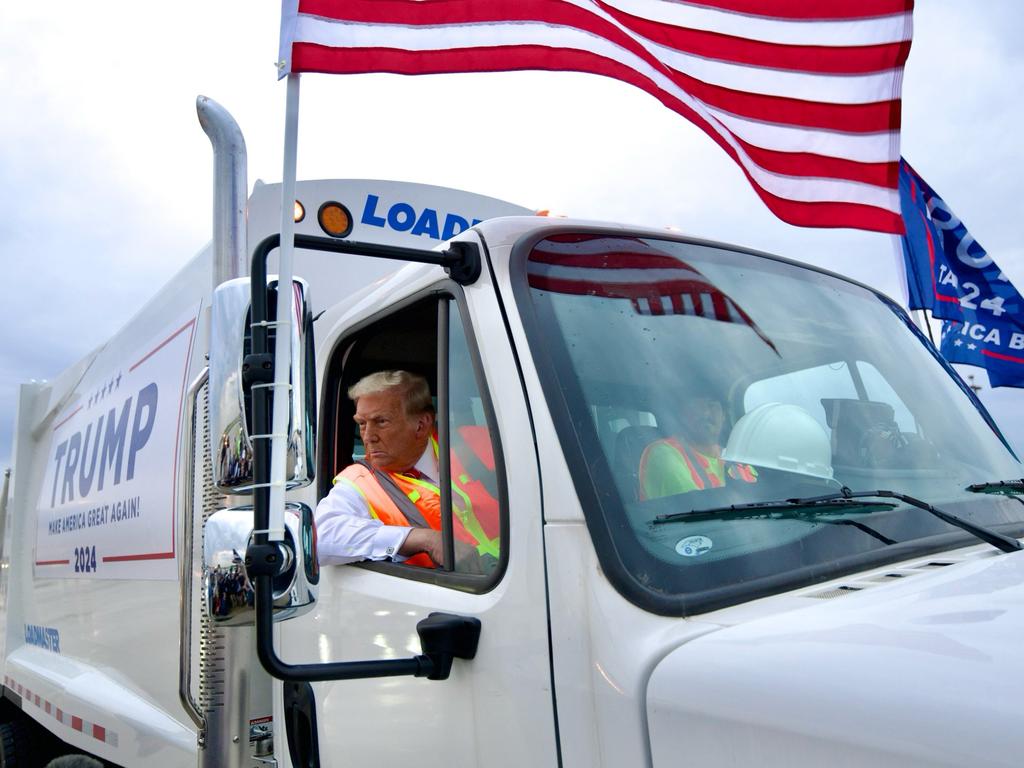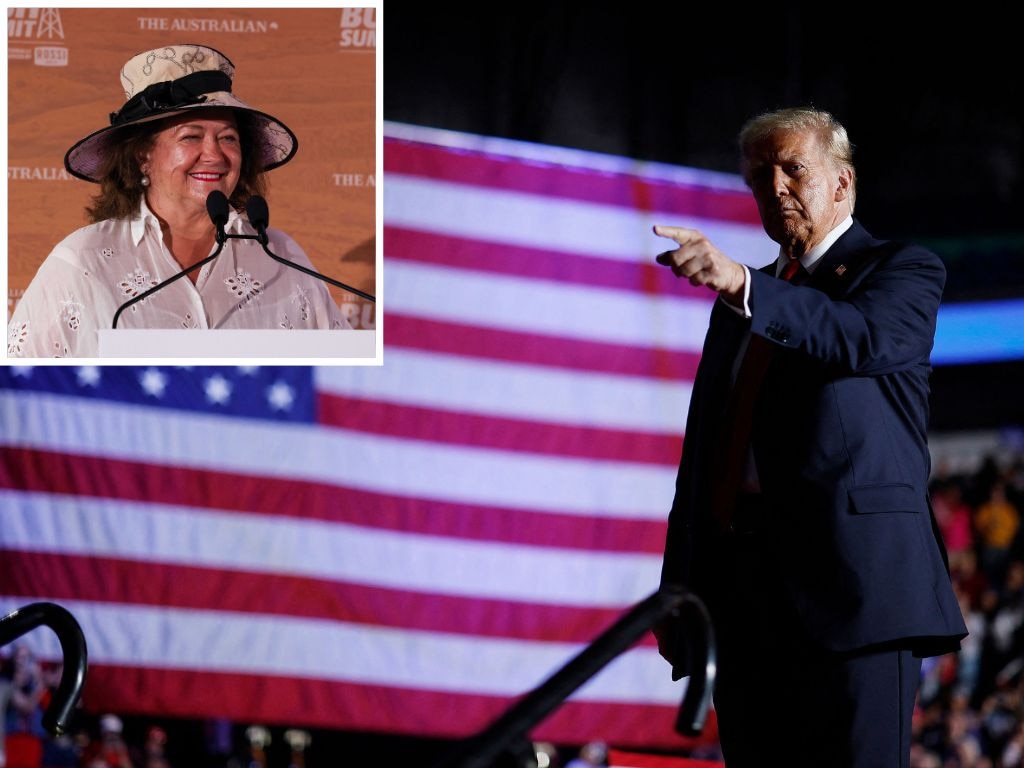Anti-Trump rhetoric has moved into overdrive


The fact this dramatic plot failed may help guide us to the conclusion that whatever happens in the US presidential election the consequences will not be as dire as commentators would have us believe.
There are two things to consider. One is that the bulk of US media – particularly the Washington-based media – is passionately anti-Trump. That spills over into our own perceptions of what a Trump administration would be like. The anti-Trump media takes literally the Democratic Party’s campaign attacks on Donald Trump as though they were fact.
This sort of unwise exaggerated rhetoric should be seen for what it is: an extreme form of party politicking.
Likewise, the Trump campaign describes Kamala Harris as thick, dumb and directionless. That, too, is party political rhetoric. We are told by the Trump camp that she would destroy America. Really?
All this reminds me of the head of an Australian think tank telling me he was in Washington at the time of president Barack Obama’s inauguration and he saw a dove flying over the city. He was so excited about Obama’s election that he thought this augured well for an era of peace. Well, that just turned out to be childlike partisanship as well. There were a lot of wars in Obama’s time. It was obviously a pigeon, not a dove.
In my discussions in California with both Democrats and Republicans during the past few months I have been confident that regardless of who wins the presidential election, Australia will be a well-regarded ally of the US. With Harris, the Biden foreign and international economic policies will continue on their current track. A Harris administration would be deeply committed to shoring up its Indo-Pacific alliances to deter adventurism by China.
Economically, a Harris administration would be a big-spending and high-taxing government. Corporate taxes and income taxes for high-income earners would increase. Environmental regulations would be tightened. That will not contribute to global economic growth but neither will Harris’s policies be catastrophic.
As for trade, a Harris administration would hardly be a champion of free trade. It will at the very least retain high tariffs on imports from China and certainly will not get into bilateral or multilateral global trade liberalisation negotiations.

So what about Trump? His foreign policy theme is peace through strength. By that he means he would negotiate with Russian President Vladimir Putin, Iranian leader Ayatollah Ali Khameni and Chinese President Xi Jinping but he would do so from a position of strength.
He would abandon the attempts by the Democrats to renegotiate agreements with Iran, he would increase tariffs on China, unless Beijing agreed to give the US better access to its market, and my guess is he would tell Putin to negotiate an armistice with Ukrainian President Volodymyr Zelensky or the US would pour additional military resources into supporting Ukraine.
The claim by the Democrats that Trump likes dictators and therefore would agree to what the likes of Xi and Putin wanted is just party politicking. He may admire the leadership qualities of those dictators, but his point is he wants to deal with them but from a position of strength, not hesitation and weakness.
As for allies, a Trump administration would maintain alliances but as we know from the first Trump administration he would have an expectation that allies made a commensurate contribution to their own defence. Australia will be seen as a country that is already pulling its weight and there is no doubt the Trump administration would continue with the AUKUS agreement.
Would Trump impose tariffs on Australia? Despite the fact the Howard government concluded a free-trade agreement with George W. Bush? The Trump people tell me Australia will be fine.
They say commentators misunderstand the Trump approach to tariffs. They should be seen as an ambit claim. Tariffs will be imposed unless countries agreed to liberalise their markets for American exporters.
So whoever wins the presidential election, the consequences will not be as dire as the partisans claim.
The second consideration is the congress. Opinion polling indicates the Republicans will win control of the Senate and therefore would force a Harris administration to negotiate with the GOP appointments that have to be approved by the Senate.
Similarly, a Harris administration would not be able to increase taxes or change laws in other ways without winning bipartisan support.
Is it possible that in the event Trump wins the presidency and the Republicans the Senate the Democrats could win control of the House of Representatives? That likewise would force a Trump administration to negotiate bipartisan agreements to get legislation through the house.
There is, of course, the scenario where Trump wins the presidency and the Republicans win control of both houses of congress. That is not a probable outcome, but it is by a small margin the most likely outcome of the election. That result would give Trump a much freer rein to pursue his taxation, regulatory and budgetary policies.
But there’s still no guarantee that Trump would be able to persuade every single Republican senator and member of the house to embrace his legislative proposals.
My point is simple. Whether Harris or Trump wins, the winner still will have to navigate the shoals of the congress.
Forecasts are meaningless this close to the election but I will give you one: just as England calmed down – at least for a while – after the Gunpowder Plot of November 5, 1605, so America eventually will calm down after the tumult of the elections on November 5, 2024. But it won’t happen overnight.
There will be much gnashing of teeth and resorting to the courts before America calms down again. But, as they say, don’t bet against America.







Some may think it is appropriate that the US election is on Guy Fawkes Day, November 5. That is the day that commemorates the attempt, in 1605, by Guy Fawkes and his Catholic colleagues to blow up the Houses of Parliament in London and to kill the Protestant king.